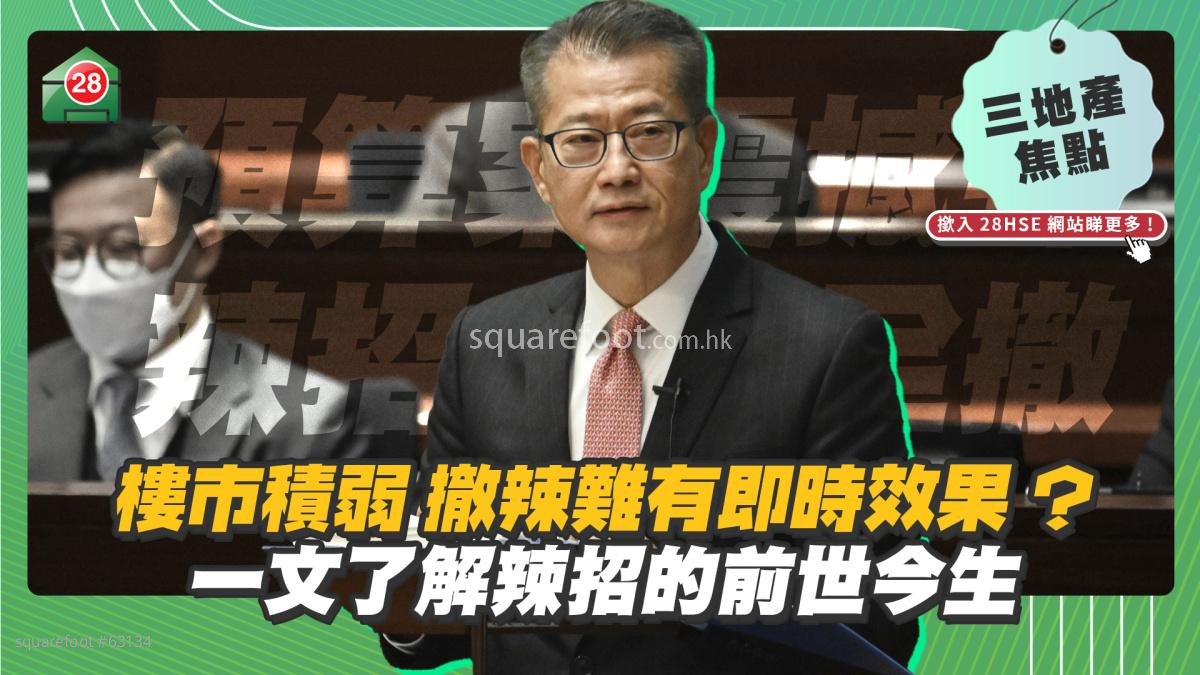- Home
- News
- Expert Blog
- Wed Property Focus
- Hong Kong Scraps Property Cooling Measures: Property Market To Rebound
The day we never thought we’d see has arrived—the withdrawal of cooling measures in the Hong Kong property market. The most significant highlight of this year’s budget is the Financial Secretary Paul Chan Mo-po’s announcement of the complete removal of these measures.
Effective immediately, all residential property transactions are exempt from the Special Stamp Duty (SSD), Buyer’s Stamp Duty (BSD), and New Residential Stamp Duty (NRSD), with the government deeming these measures unnecessary under the current economic and market conditions.
Following this, the Hong Kong Monetary Authority announced a suspension of the mortgage stress test requirement, which previously added 2 percentage points to the assumed interest rate. Under the new measures, first-time buyers need only ensure their monthly mortgage payments do not exceed 50% of their income to qualify, significantly reducing the difficulty of meeting income requirements.
For a loan of HK$5 million over 30 years at an effective interest rate of 4.125%, the income requirement drops from HK$50,634 under the stress test to HK$48,464 when calculated with the monthly repayment rate, a decrease of HK$2,170.
Looking back at the history of the property market's cooling measures, we can trace their origin back to November 2010 when the government first introduced the SSD. Property owners who resold units within 2 years were required to pay a tax rate between 5% and 15%. Approximately two years later, the resale restriction period was adjusted to 3 years, and the tax rate was modified to 10% to 20%.
In October 2012, to restrict non-local individuals and corporate buyers, the government introduced the BSD, which imposed a 15% tax on these buyers; this was reduced to 7.5% last year. Moreover, a "pay later" scheme was implemented for professionals, where the tax is only levied if they do not become permanent residents of Hong Kong eventually.
The NRSD was introduced in 2013. For properties under HK$2 million, the stamp duty increased from a flat HK$100 to 1.5% of the property price, and the rates for other properties were doubled, with the highest rate rising from 4.25% to 8.5%. In November 2016, the measures were further tightened, with a uniform 15% stamp duty imposed on buyers of a second or additional property.
Hong Kong's housing issues have long been a hot topic, with the market witnessing a continuous decline and calls for the reduction of cooling measures growing louder. Now that all these measures have been canceled, they are part of history. What impact will this have on the local property market? Ideally, it could stimulate the market, increase transaction volume, and lead to a rebound in property prices.
Undeniably, the news of the withdrawal of cooling measures has led to many property owners raising prices and holding off on selling, with the market generally optimistic about the future. However, given the long period of weakness in the property market, prices are unlikely to rebound immediately, and it is believed that it will take some time to see the effects.
Another potential scenario is that the market changes might only attract speculators, failing to assist citizens in need. In response, the government should perhaps consider implementing policies targeted specifically at first-time homebuyers in the future, such as reintroducing loan schemes for first-time homebuyers to help those who struggle with down payments.
Like 6
| Property Type | Price | Ads Period |
|---|---|---|
| For Sale Property | ||
Normal Listing Typical One | HKD:1000 (or Hsemoney:1000) | Valid:90 days |
Golden Top Listing Higher position than Top listing 2-3times better performance | HKD:3000 (or Hsemoney:3000) | Valid:60 days |
| Rental Property | ||
Normal Listing Typical One | HKD:1000 (or Hsemoney:1000) | Valid:80 days |
Golden Top Listing Higher position than Top listing 2-3times better performance | HKD:3000 (or Hsemoney:3000) | Valid:60 days |
